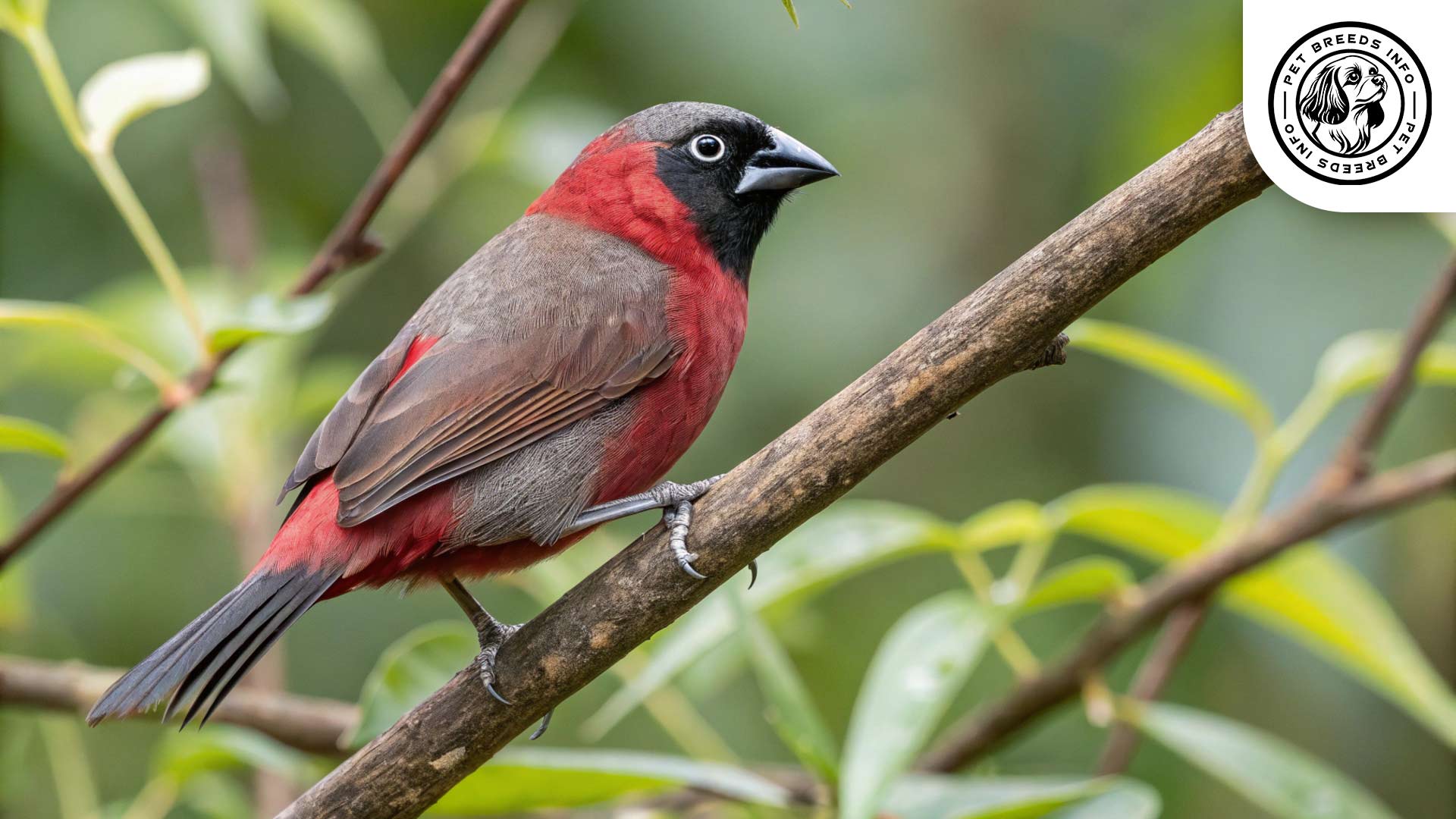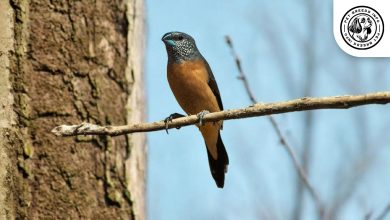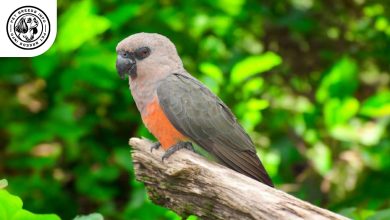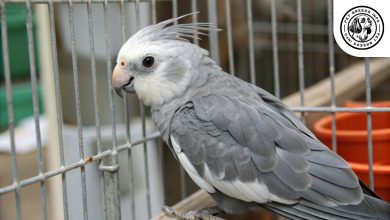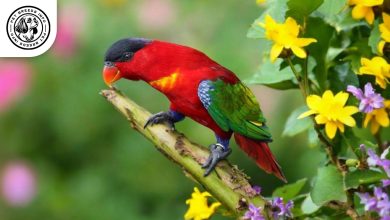Black-faced Firefinch Bird: Personality, Lifespan, Food & Care
General Introduction of the Breed
The Black-faced Firefinch (Lagonosticta larvata) is a small and striking species of finch belonging to the estrildid family. This bird is native to sub-Saharan Africa and is commonly found in countries such as Senegal, Sudan, Nigeria, and Ethiopia.
It is also sometimes referred to as the Masked Firefinch due to its distinctive facial markings. These finches are popular among bird enthusiasts for their vibrant coloration and charming personality.
Table of Contents
| Common Name | Black-faced Firefinch, Masked Firefinch |
| Scientific Name | Lagonosticta larvata |
| Origin | Sub-Saharan Africa (Senegal, Sudan, Nigeria, Ethiopia) |
| Size | 10 to 12 cm (4 to 5 inches) |
| Lifespan | 5 to 8 years |
| Talking Ability | Not mentioned (generally not known for talking) |
| Colors | Deep crimson or maroon body, distinct black facial mask |
| Noise Level | Pleasant and melodic song |
| Social Behavior | Social, tends to live in small flocks or pairs |
Physical Characteristics
The Black-faced Firefinch is a small bird, measuring between 10 to 12 cm (4 to 5 inches) in length and weighing approximately 9 to 12 grams.
Its plumage is striking, with a deep crimson or maroon body, contrasted by a distinct black facial mask. The males usually have darker, more vibrant markings than the females.
The bird’s eyes are small, round, and dark brown, complementing the black face mask. Its beak is short, strong, and slightly curved, typically dark gray or black in color.
The wings and tail are proportionate to its body size, with the tail being slightly pointed. The legs and feet are dark gray or brownish.
Read More: Black-cheeked Lovebird
Personality and Temperament
The Black-faced Firefinch is a social and relatively shy bird. It tends to live in small flocks or remain in pairs in the wild.
It is generally peaceful and can coexist with other small finches, although it may be wary of larger bird species.
These birds have a pleasant and melodic song, making them enjoyable aviary companions. They are not overly active, but they appreciate space to fly and explore.
They are sensitive to changes in their environment, so a stable and quiet setting is ideal for keeping them happy.
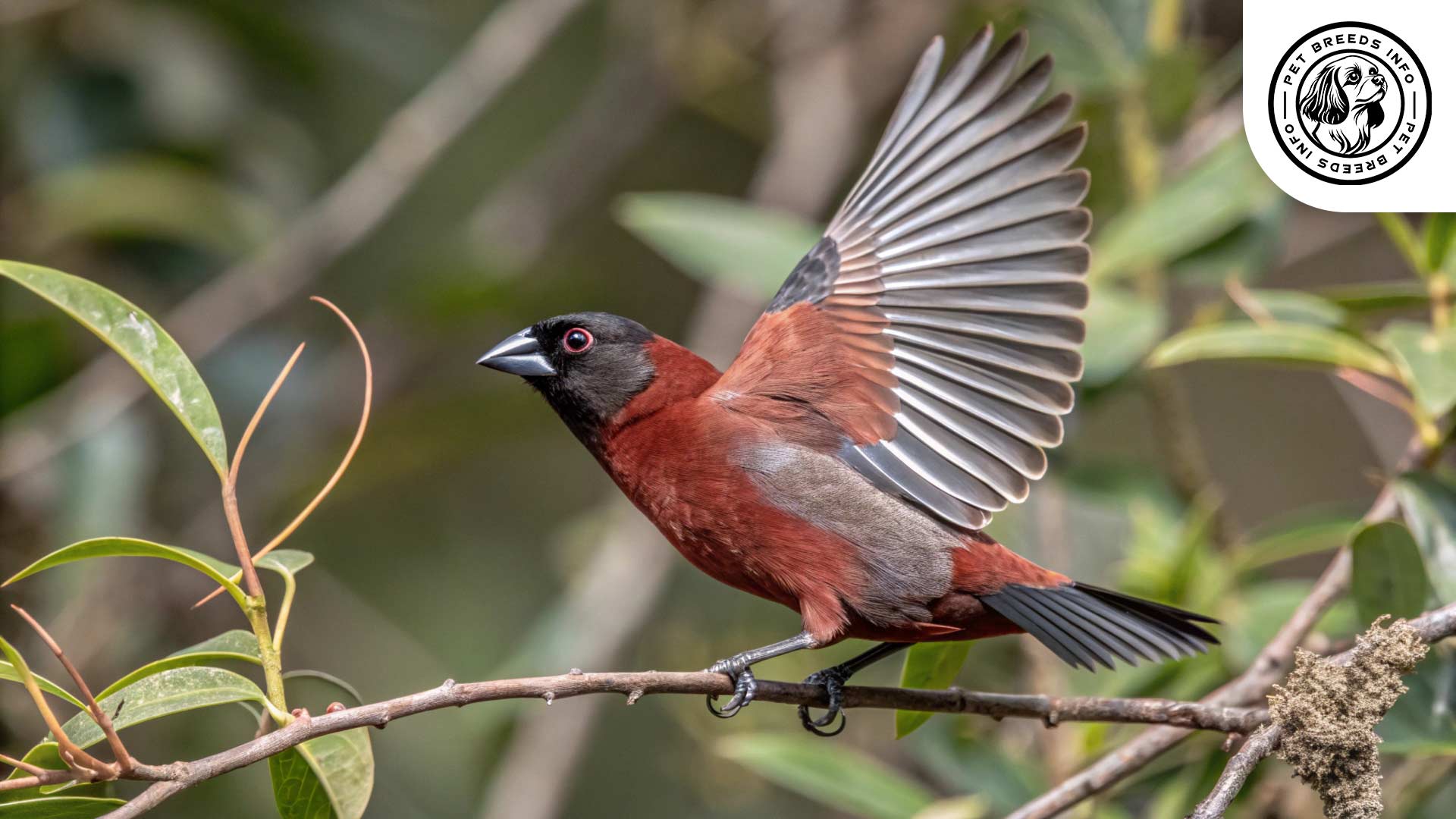
Care and Maintenance Requirements
The Black-faced Firefinch requires a spacious cage or aviary with plenty of perches and plants for hiding and roosting.
A temperature-controlled environment is important, as these birds cannot withstand extreme cold or humidity fluctuations.
Regular cage cleaning is essential to prevent disease. They should have access to fresh water at all times.
Minimal grooming is required apart from monitoring their beak and claws, which may occasionally need trimming if they do not wear down naturally.
Diet and Nutrition
The ideal diet for the Black-faced Firefinch consists of high-quality finch seed mix supplemented with fresh greens, soft fruits, and small insects.
Live or dried insects such as mealworms and small caterpillars provide essential protein, particularly during the breeding season.
Certain foods such as avocado, chocolate, caffeine, and salty or sugary foods should be strictly avoided, as they are toxic to birds.
Provide fresh food daily and ensure clean drinking water is always available.
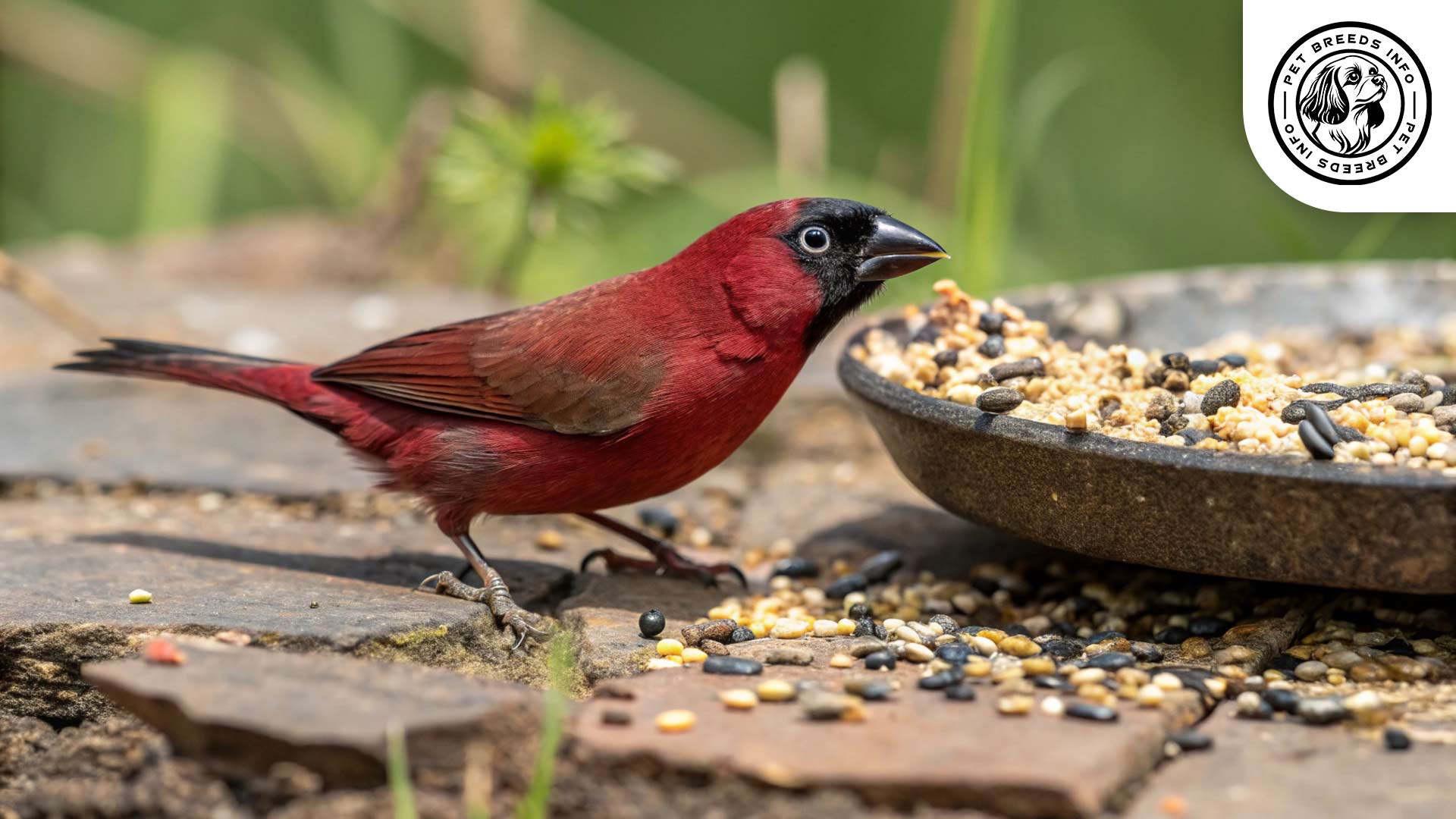
Health and Common Medical Issues
Common health problems among Black-faced Firefinches include respiratory infections, mites, and nutritional deficiencies.
A high-quality diet and a clean living environment can help prevent many health issues.
They have an average lifespan of 5 to 8 years in captivity when well cared for.
Regular veterinary checkups are recommended to ensure overall health and early detection of any illnesses.
Training and Behavior Management
Black-faced Firefinches do not require training in the way that parrots or other birds might. However, they can be conditioned to become more comfortable with human presence.
Providing a routine and gentle interactions can help them build trust with their owner.
They respond best to a stable environment and consistency in feeding and handling.
Read More: Brahma Chicken
Interaction with Other Animals and Humans
These finches are peaceful by nature and can coexist with other finches and small, passive bird species.
They are not ideal for handling, as they prefer to be observed rather than touched.
Their shy temperament makes them better suited for patient birdkeepers who appreciate watching birds rather than interacting with them directly.
Price and Availability
The price of Black-faced Firefinches varies depending on the breeder and availability, generally ranging between $50 to $150 per bird.
They are more commonly found at specialty bird breeders rather than standard pet stores.
Before purchasing a finch, ensure that the seller is reputable and that the bird is healthy.
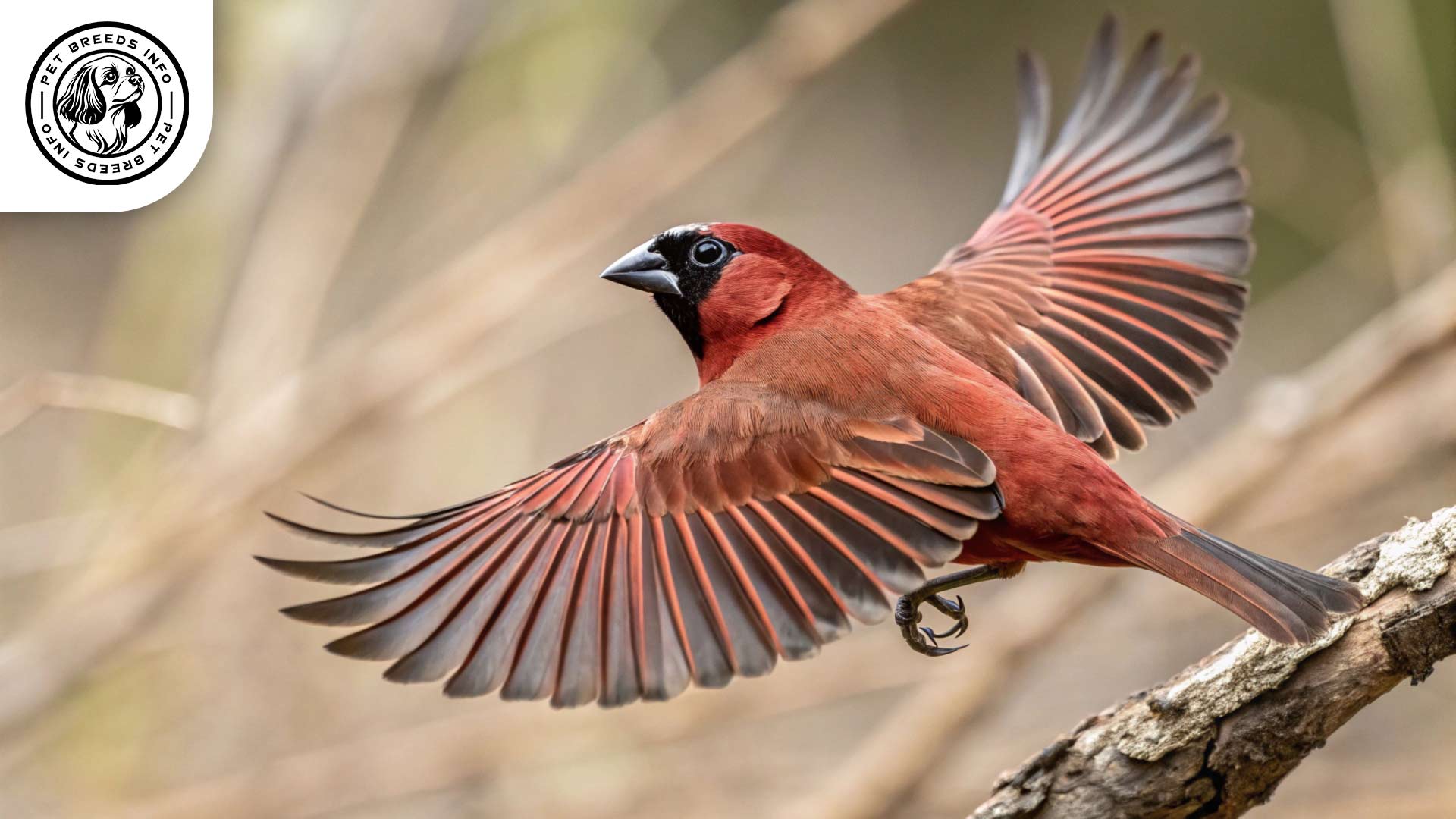
Conclusion and Final Thoughts
The Black-faced Firefinch is an excellent choice for bird lovers who appreciate colorful and musical birds with a calm demeanor.
They are well-suited for aviaries and communal settings with other finches.
Owners should be prepared to provide a stable environment, a proper diet, and adequate space for flight and exploration.
Before acquiring a Black-faced Firefinch, potential owners should consider its social nature, dietary needs, and sensitivity to environmental changes.
Read More: Aylesbury Duck
FAQ
What is a Black-faced Firefinch?
A small, colorful finch from sub-Saharan Africa with a deep crimson body and a distinct black facial mask.
How big do Black-faced Firefinches get?
They typically measure between 10 to 12 cm (4 to 5 inches) in length.
Are Black-faced Firefinches good pets?
They are good for bird lovers who appreciate observing rather than handling, and they thrive in aviaries with a stable environment.
What do Black-faced Firefinches eat?
Their diet consists of a high-quality finch seed mix supplemented with fresh greens, soft fruits, and small insects.
How long do Black-faced Firefinches live?
With proper care, they have an average lifespan of 5 to 8 years in captivity.
